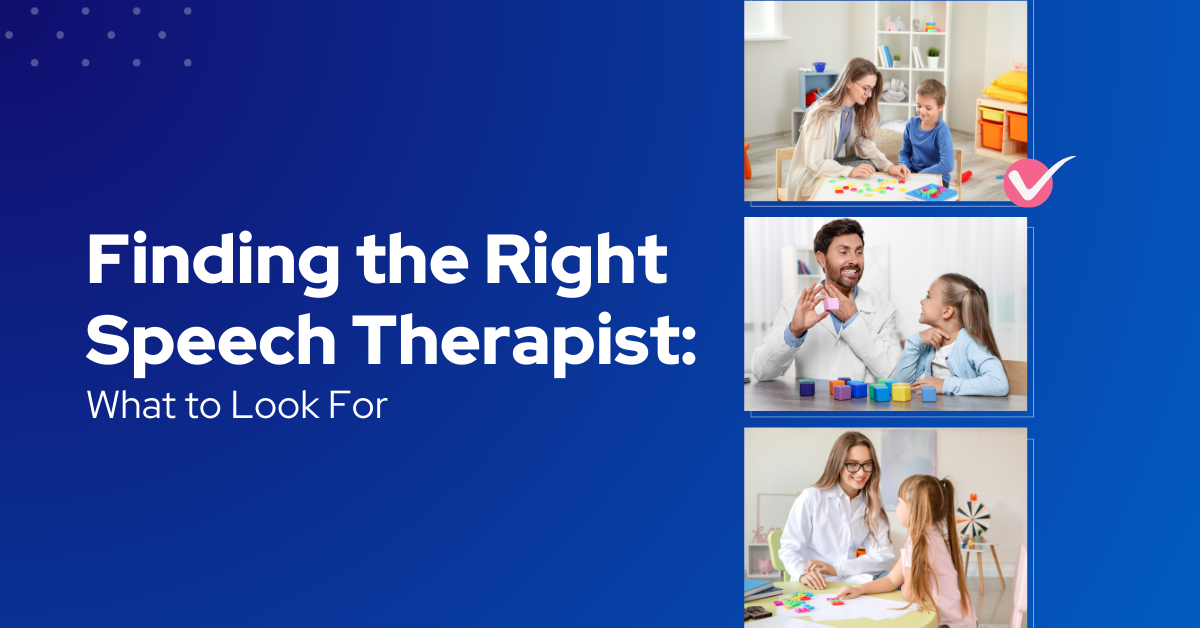Choosing the right speech therapist for your child or yourself can be a life-changing decision. Speech therapy addresses more than just articulation; it can also support social skills, improve confidence, and positively impact mental and emotional well-being. With so many options, it’s essential to know what qualities and qualifications matter most. In this article, we’ll guide you through the key factors to consider when searching for a speech therapist, ensuring you find a professional who best meets your needs or those of your loved one.
Why Speech Therapy Matters
Speech therapy plays a crucial role in helping individuals develop or improve their communication skills. According to the American Speech-Language-Hearing Association (ASHA), early and effective intervention in speech and language disorders can significantly boost overall life quality. Studies show that children who receive timely and targeted speech therapy have a 70% greater chance of overcoming speech and language delays by the time they reach school age.

What to Look for in a Speech Therapist
Finding the right speech therapist involves looking beyond basic qualifications. Here are essential factors to consider when choosing a therapist who aligns with your goals.
1. Relevant Credentials and Certifications
Look for therapists certified by professional bodies like ASHA in the U.S. or the Royal College of Speech and Language Therapists (RCSLT) in the U.K. Certification ensures that the therapist has undergone rigorous training and adheres to professional standards.
- Credentials to Check: Certified Speech-Language Pathologist (SLP), ASHA’s Certificate of Clinical Competence (CCC), or a Master’s degree in Speech-Language Pathology.
Research shows that certified speech therapists tend to use evidence-based methods, leading to faster and more effective outcomes.
2. Experience with Specific Speech Disorders
Speech therapists often have areas of specialization, such as articulation, fluency, or voice disorders. Identifying the therapist's expertise with the specific condition you’re seeking treatment for is essential.
- Common Specializations:
- Articulation and Phonological Disorders: For pronunciation difficulties.
- Language Development Delays: Often relevant for children with delayed vocabulary and sentence formation.
- Voice and Resonance Disorders: For issues related to pitch, volume, and quality of speech.
- Feeding Disorders: For difficulties tolerating and eating a variety of foods or swallowing deficits.
A survey by Speech Pathology Australia found that 60% of parents rated therapists with specialized experience as “very effective” in helping their children make faster progress.
3. Approach and Methodology
Different speech therapists may use varying methods and approaches, including:

Choosing a therapist who uses evidence-based methods and personalizes sessions is crucial. Research suggests that tailored treatment plans are 30% more effective in achieving long-term progress compared to one-size-fits-all approaches.
4. Therapist’s Communication Style
The therapist's personality and communication style should resonate with the client, whether it’s a child or an adult. It’s important that the therapist is patient, encouraging, and skilled at explaining concepts in an accessible way.
When choosing a therapist for a child, ask:
- Does the therapist make the sessions enjoyable and engaging?
- Are they flexible in adapting their techniques if a child seems frustrated or disinterested?
A study published in the Journal of Speech, Language, and Hearing Research found that children’s progress is often faster when they have a positive rapport with their therapist.
5. Parent or Caregiver Involvement
Therapists who encourage parent involvement often see better results, especially in children. Parental support and practice outside of therapy sessions reinforce what’s learned during therapy.
According to research, children whose parents actively practice exercises at home experience 25-50% faster progress. The best therapists not only communicate with parents but also provide homework and techniques for ongoing support.

6. Flexibility and Accessibility
Consider the therapist's availability, location, and scheduling options. Consistency is key in speech therapy, so it’s vital that sessions are easy to attend. Many therapists offer flexible options:
- In-Person Sessions: Preferable for younger children or those with more complex speech needs.
- Online Therapy (Teletherapy): Ideal for older children and adults, especially those in remote areas.
Teletherapy has shown comparable effectiveness to in-person therapy, according to studies from the American Journal of Speech-Language Pathology. Make sure the therapist uses quality video platforms and maintains regular contact.
7. Cost and Insurance Coverage
Speech therapy can be costly, so it’s important to understand the financial side:
- Insurance Coverage: Check if the therapist accepts insurance and if your plan covers speech therapy.
- Session Costs: Depending on location and specialization, costs can vary widely, from $50 to $200 per session.
- Package Options: Some therapists offer discounts for multi-session packages or family rates.
According to the National Institute on Deafness and Other Communication Disorders (NIDCD), early intervention in speech therapy can actually reduce long-term costs by preventing the need for extended treatment in later years.
How Spot Pal Can Support Speech Therapy Progress
If your child or you are undergoing speech therapy, a tool like Spot Pal can be a valuable supplement. Designed to encourage proper tongue positioning and breathing, Spot Pal complements the work done in therapy sessions, reinforcing muscle strength and control even outside of therapy hours.
Many speech therapists recommend tools like Spot Pal for patients struggling with tongue positioning and articulation. Consistent use of Spot Pal can also improve breathing, which in turn supports clearer speech and more confident communication.
Finding the right speech therapist is an important decision that requires careful consideration. By looking for professionals with relevant certifications, a strong background in the specific speech disorder, a flexible approach, and supportive communication, you can ensure the best possible experience and outcomes.
Whether it’s for a child or an adult, choosing the right therapist can transform lives—enhancing communication skills, boosting confidence, and opening up new social and academic opportunities. And with supplementary tools like Spot Pal, you can maximize the effectiveness of each session, reinforcing vital skills in daily life.

Share:
How Mouth Breathing Affects Sleep Quality and Overall Health
Common Misconceptions About Speech Disorders: Debunking Myths